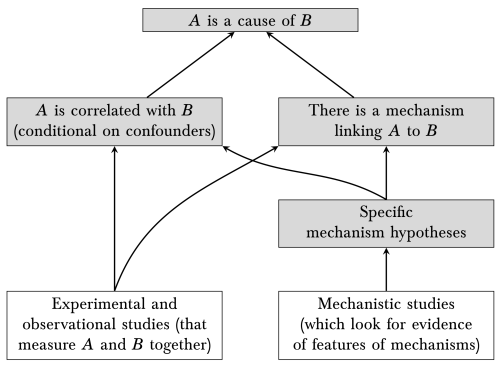Article by Joe Jones, Alexandra Trofimov, Michael Wilde & Jon Williamson: “…While the need to integrate scientific evidence in policymaking is clear, there isn’t a universally accepted framework for doing so in practice. Orthodox evidence-based approaches take Randomised Controlled Trials (RCTs) as the gold standard of evidence. Others argue that social policy issues require theory-based methods to understand the complexities of policy interventions. These divisions may only further decrease trust in science at this critical time.
EBP+ offers a broader framework within which both orthodox and theory-based methods can sit. EBP+ also provides a systematic account of how to integrate and evaluate these different types of evidence. EBP+ can offer consistency and objectivity in policy evaluation, and could yield a unified approach that increases public trust in scientifically-informed policy…
EBP+ is motivated by Evidential Pluralism, a philosophical theory of causal enquiry that has been developed over the last 15 years. Evidential Pluralism encompasses two key claims. The first, object pluralism, says that establishing that A is a cause of B (e.g., that a policy intervention causes a specific outcome) requires establishing both that A and B are appropriately correlated and that there is some mechanism which links the two and which can account for the extent of the correlation. The second claim, study pluralism, maintains that assessing whether A is a cause of B requires assessing both association studies (studies that repeatedly measure A and B, together with potential confounders, to measure their association) and mechanistic studies (studies of features of the mechanisms linking A to B), where available…(More)”.
